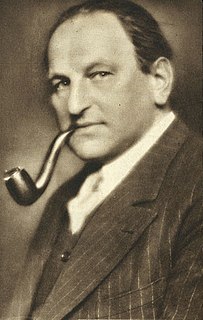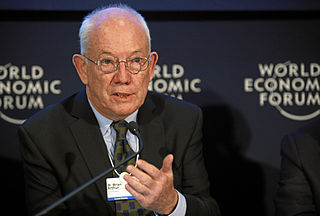A Quote by Pierre Trudeau
As against the "invisible hand" of Adam Smith, there has to be a visible hand of politicians whose objective is to have the kind of society that is caring and humane.
Related Quotes
A few months ago people were talking about seeing the light at the end of the tunnel. Now the only hope is keeping the world economy from total deterioration. And you get a sense that it is all now truly left to Adam Smith's invisible hand--it's beyond any country's ability, and institution's ability to control.
Adam Smith's uncritically enthusiastic modern disciples portray his invisible hand theory as saying that market forces reliably harness selfish individuals to serve the common good. That's often true, but as Darwin recognized clearly, many traits that serve the interests of individual animals make life more difficult for larger groups.
Adam Smith is an egalitarian, he believed in equality of outcome, not opportunity. He is an enlightenment figure, pre-capitalist. He says, suppose in England, one landowner got most of the land and other people would have nothing to live on. He says it wouldn't matter much, because the rich land owner, by virtue of his sympathy for other people would distribute resources among them, so that by an invisible hand, we would end up with a pretty egalitarian society. That is his conception of human nature.
Adam Smith's 'invisible hand' is not above sudden, disturbing, movements. Since its inception, capitalism has known slumps and recessions, bubble and froth; no one has yet dis-invented the business cycle, and probably no one will; and what Schumpeter famously called the 'gales of creative destruction' still roar mightily from time to time. To lament these things is ultimately to lament the bracing blast of freedom itself.
Let's take Adam Smith, the patron-saint of capitalism, what did he think? He thought the main human instinct was sympathy. In fact, take a look at the word "invisible hand." Which, of course, you learned about, or you think you've learned about. Take a look at the actual way in which he used the phrase. There is almost no relation to what is claimed.











































